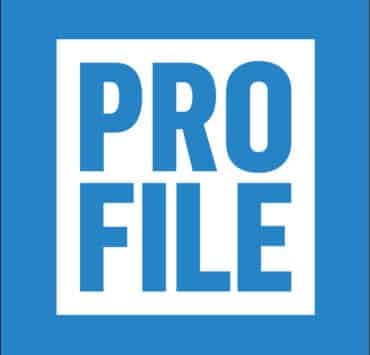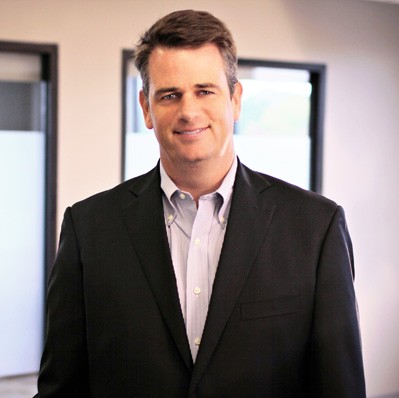
Photo: Mel Hill
Career Education Corporation (CEC), the company behind several innovative online universities and campuses across the US, has driven many of the technological changes the education system has experienced over the past decade. As senior vice president, general counsel, and corporate secretary, Jeff Ayers plays a key role in protecting the brand and enabling continued growth.
How has education changed over the last decade?
Jeff Ayers: Clearly technology has increasingly changed the focus of how we educate—what we do in the classroom. With the Internet and online education you’ve seen major shifts in how we approach education, and over time that will exponentially continue to change.
How has CEC leveraged industry changes?
Ayers: Although there has been a great deal of buzz about “adaptive learning”—that is, the use of technology to provide personalized instruction based on a student’s unique, individual needs—we have been the first to develop a program-wide adaptive-learning model that has been tested with over 60,000 students. For many of our online classes, we now have a way of educating that has really never existed in the past.
How does this differ from a traditional model of education?
Ayers: Not every student starts at the same point, but in a traditional classroom the teacher starts from one point. In an online individualized learning module, we give assessments on a continuous basis to test what a student knows and then generate a specific learning path for that student in the course and for an entire academic program. So if you already know addition, there’s no reason to have substantial coursework on addition, but if the testing shows you have deficiencies in multiplication, then we can tailor the learning toward multiplication for you. We’ve implemented this in many of our classes in all kinds of subject areas, and it’s designed to provide a unique learning experience that’s tailored to each student.
In our online classroom, students can decide how they want to learn. Some students learn by listening, others by more interaction, and others by seeing a video. So we’ve developed in our online modules the opportunity for students to select how they want to learn a lesson. That type of learning environment, coupled with the adaptive learning model, gives a very unique opportunity for students to really learn in a way that never existed in traditional classrooms ten or fifteen years ago. It is almost like each person having a personal teacher for each class, who tailors the learning to that particular student’s needs.
In what ways does culture drive the mission of CEC?
Ayers: When you’re looking at education, you want to make sure that you yourself are continuing to grow and continuing to educate. It’s really important in the education business, as we are, to be constantly looking at how we improve, how we get better, how we innovate, and build that into our culture. We need to be learning in order to be effective educators. The culture of constantly looking at new ways of educating—looking at innovation and technology in what we do—needs to be part of our mission if we’re going to be an effective education company.
What role does the legal department play in advancing CEC’s mission?
Ayers: In a company like Career Education, the legal department plays a significant role in a couple of areas. First, education in America today has a lot of regulation—from the Department of Education, which administers federal student-aid programs, to state-licensing bodies to accreditors of various educational institutions—and all of that requires legal expertise to manage.
Second, as our educational institutions continue to innovate and utilize technology, we can provide support in not only looking at the various types of agreements to secure technology, but in how we protect and continue to build upon the technology that we have. In both areas the legal department can really be a good business partner, help the business move forward, and secure what it needs to be effective and help set a culture of continuous improvement and innovation.
How have you made the most of technology advancements?
Ayers: We’ve developed some of the technology ourselves, so in the legal department we’ve done a lot of work with the company to protect our intellectual property. We also looked at how we market it—from branding to trademarks and patents. We’ve acquired some of the technology from technology partners, and we’ve done a lot of legal work around that. One key joint venture we’ve entered into is with a company in Ireland that is on the forefront of the analytical engine that drives a lot of what we do in our adaptive-learning platform. It creates some interesting work from a legal standpoint in securing technology and making it available to our businesses.
How much of CEC’s technology is proprietary?
Ayers: We are one of the few education companies that has developed a learning platform that is proprietary to our institutions. A lot of our competitor institutions have licensed their learning platforms through a third party that is also licensing it to other institutions as well. Much of our learning platforms and related technology have been developed in-house over many years. This gives us some competitive advantages in our institutions’ ability to deliver individualized, personalized learning to students.
What is your focus for 2015?
Ayers: We will continue to work with the business to look at the whole innovation area and technology, expanding our opportunities to be innovative; to expand and grow our use of the adaptive-learning technology in our online institutions; and even to see if there are ways to incorporate parts of that into the traditional classroom.
We will also continue to work with the businesses to monitor all of the changes that continue to occur in regulation and accreditation, and really work with them to be proactive in that area and make changes in advance so the business can move forward without significant impact.

